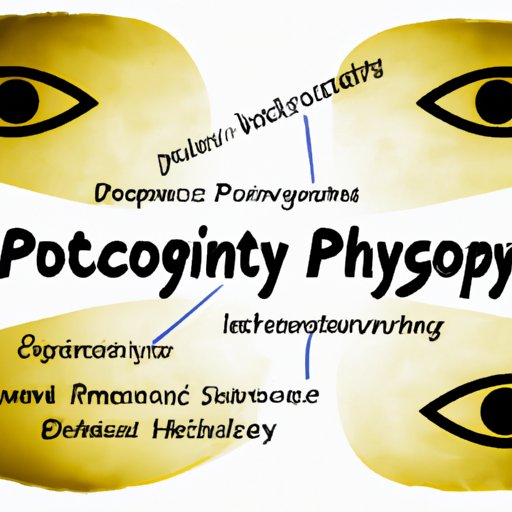Introduction
Psychology is the scientific study of the mind and behavior. This field of study involves exploring how people think, feel, and act, as well as why they do so. While it may not seem like psychology is a science, it is in fact an empirical discipline that relies on scientific methods and evidence-based theories to explain human behavior.
This article will explore how psychology is a science by examining its relationship to neuroscience, the scientific method, biology, social and cultural influences, mathematics, and statistics. It will also evaluate the effectiveness of different types of psychotherapies.

Exploring the Science of Psychology: An Overview
The science of psychology is closely related to the field of neuroscience. Neuroscience is the study of the nervous system and how it affects behavior. By understanding the brain and its functions, psychologists can better understand why people behave the way they do.
Psychologists also use the scientific method when conducting research. The scientific method is a process of experimentation that helps researchers test hypotheses and draw conclusions about their findings. This includes gathering data, forming hypotheses, testing those hypotheses, analyzing the results, and drawing conclusions based on the results.
Investigating the Relationship Between Biology and Psychology
Biology plays an important role in psychology. Biological factors such as genetics and hormones influence behavior. For example, a person’s genetic makeup may affect their likelihood of developing certain mental health disorders. Additionally, hormones can influence mood and other aspects of behavior.
Social and cultural influences also shape psychological processes. For example, a person’s culture may influence their beliefs and values, which in turn can influence behavior. Additionally, social relationships can have a significant impact on psychological functioning.
Mathematics and statistics are also essential tools for psychologists. Statistics are used to analyze data collected from experiments and surveys, while mathematics is used to model psychological phenomena and develop theories about behavior.

Evaluating the Effectiveness of Different Psychotherapies
Psychotherapy is a type of treatment used to help people address mental health issues. There are many different types of psychotherapy, including cognitive-behavioral therapy, interpersonal therapy, and psychodynamic therapy. Each of these approaches has its own strengths and weaknesses and can be used to treat different types of mental health problems.
The effectiveness of psychotherapy depends on a variety of factors, including the therapist’s experience and training, the type of therapy used, and the client’s willingness to engage in the therapeutic process. Research has shown that some forms of psychotherapy, such as cognitive-behavioral therapy, can be effective in treating a wide range of mental health issues.
Conclusion
In conclusion, this article has explored how psychology is a science by examining its relationship to neuroscience, the scientific method, biology, social and cultural influences, mathematics, and statistics. It has also evaluated the effectiveness of different types of psychotherapies.
Psychology is an empirical field of study that relies heavily on scientific methods and evidence-based theories. By understanding how neuroscience, biology, social and cultural influences, mathematics, and statistics all contribute to the science of psychology, researchers can gain a better understanding of why people behave the way they do.
Further research is needed to better understand the complexities of psychological processes and the effectiveness of different psychotherapies. However, this article has provided an overview of how psychology is a science and how it can be used to improve mental health outcomes.
(Note: Is this article not meeting your expectations? Do you have knowledge or insights to share? Unlock new opportunities and expand your reach by joining our authors team. Click Registration to join us and share your expertise with our readers.)
